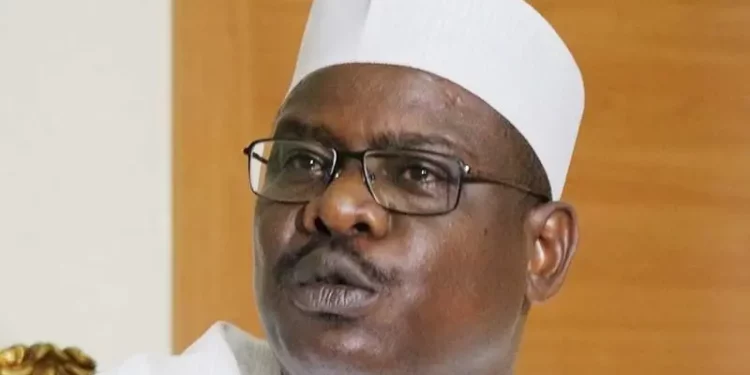Former Senate Leader, Senator Ali Ndume, has cautioned labour unions and stakeholders in the oil industry against what he described as a deliberate attempt to “demonise” Dangote Refinery amid ongoing disputes in the downstream petroleum sector.
The intervention came on the heels of a face-off between the management of Dangote Refinery and the Nigerian Union of Petroleum and Natural Gas Workers (NUPENG), as well as the Depot and Petroleum Products Marketers Association of Nigeria (DAPPMAN).
Recall that NUPENG had recently embarked on an industrial action, shutting down depots over the refinery’s alleged refusal to allow truck drivers to join the union as required under the Trade Union Act. On its part, DAPPMAN accused the refinery of stifling competition by allegedly offering products at cheaper rates to international traders while sidelining Nigerian marketers.
Although the Department of State Services (DSS) has since waded into the dispute, tensions remained high in the sector.
However, in a statement issued in Abuja on Wednesday, Ndume described the backlash against Dangote as “a poisonous media narrative to paint Dangote in a bad light in the eyes of Nigerians and the international community.”
He urged unions and stakeholders to pursue dialogue rather than fueling division. “I urge NUPENG, PENGASSAN, and all concerned stakeholders to engage in constructive dialogue with Dangote rather than inciting division and undue sensationalism in the media. Our common goal should be to balance labour rights with the imperatives of national development and not put ordinary citizens at the receiving end of a needless power tussle,” he said.
The lawmaker, who represents Borno South, recalled that successive administrations had issued refinery licences to private operators but lamented that many of them failed to deliver.
“Before Dangote took the risk to build his refinery, previous administrations had granted licenses to many Nigerians. What did they do with it? Some of them only cashed in on the incentives of crude oil allocation. If my memory serves me right, licenses were granted to 12 private operators as far back as 2002 to build refineries and reduce dependence on imported fuel. The second round of licenses was done in 2007 by the then Department of Petroleum Resources after revoking the first batch, and granted nine new licenses to private investors. Those parading themselves as fuel importers today didn’t seize the initiative to come together to build refineries. Again, during the Buhari administration, licenses were granted to private investors to build modular refineries. How many of them actually scratched the surface, but they are ganging up to falsely accuse Dangote of monopolising the market,” Ndume stated.
The lawmaker insisted it was wrong to accuse Dangote of seeking monopoly, noting that the Petroleum Industry Act (PIA) had already deregulated the sector.
“It is wrong to talk about monopoly in a deregulated industry. There are no deliberate bottlenecks against anyone, and no player has been accorded a special concession to the detriment of others,” he argued.
Ndume further urged regulators, including the Ministry of Petroleum Resources and the Nigerian Midstream and Downstream Petroleum Regulatory Authority (NMDPRA), to step in and prevent disputes from disrupting the distribution of petroleum products nationwide.



